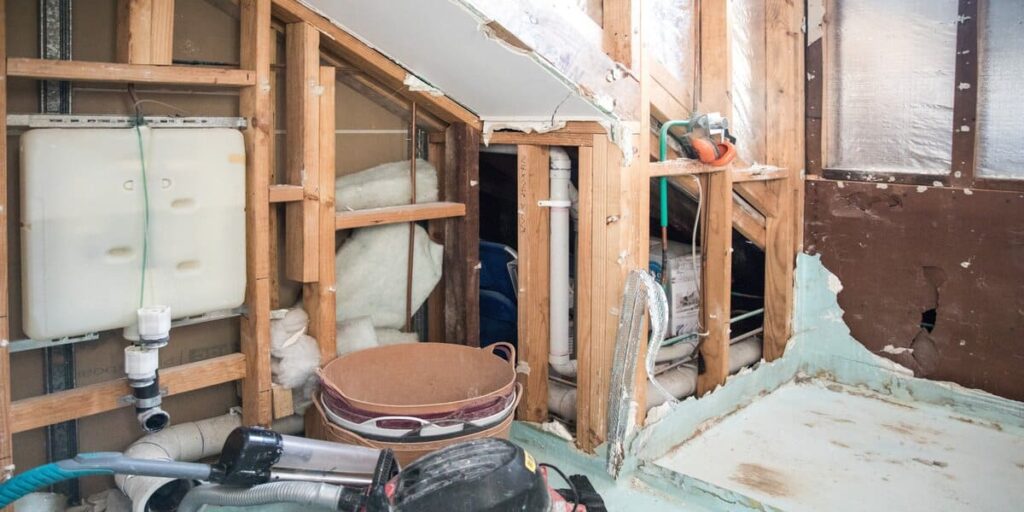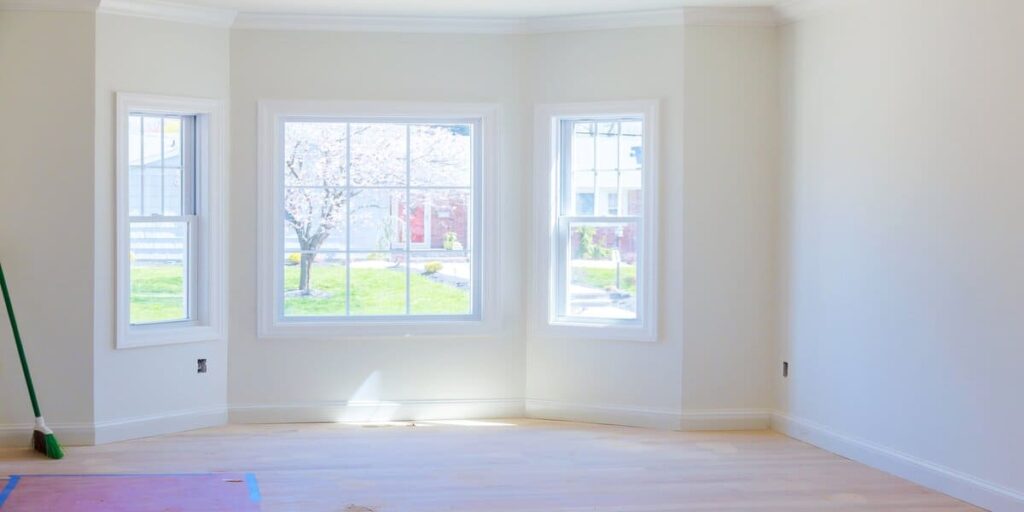Embarking on a home renovation project is often a thrilling journey, filled with the anticipation of transforming a space into your personalized haven. However, this excitement is frequently accompanied by the inevitable challenges of budgeting, decision-making, and navigating the complex process of bringing your vision to life. Home renovation delays, a commonplace hurdles in the renovation timeline, can stem from various unforeseen circumstances, necessitating a robust set of strategies to manage and overcome these obstacles effectively. Acknowledging these realities from the outset prepares homeowners for a smoother renovation experience, ensuring that the end result is as rewarding as the vision that inspired it.
Causes of Home Renovation Delays
Supply Chain Issues
Material shortages and delivery delays are significant factors that disrupt renovation timelines. When key materials are back ordered or shipments are delayed, every subsequent renovation phase can be pushed back, leading to increased costs and extended time frames. This is often exacerbated by global events affecting manufacturing and transportation, making it crucial for homeowners and contractors to have flexible, alternative options and a well-thought-out timeline.
Weather Conditions
Unexpected weather conditions, from heavy rains to extreme temperatures, can halt construction activities, posing safety risks and damaging materials. Outdoor projects are particularly vulnerable to weather delays. Planning for weather-related setbacks often involves building extra days into the project timeline and planning to protect work-in-progress from the elements.
Labor Shortages
The availability of skilled labor is a component of any renovation project. A shortage of qualified professionals can lead to significant delays as finding and scheduling experienced workers becomes more challenging. This scarcity can be due to various factors, including high demand in the construction industry, specialized skills required, or regional workforce variations, making it essential to secure a reliable team early in the planning process.
Planning and Permitting
Obtaining the necessary permits and approvals is a process that often takes longer than anticipated. Each jurisdiction has its own set of rules and timelines for issuing permits, which can be further delayed by incomplete applications or a backlog of requests. Understanding the permitting process, preparing accurate and detailed plans, and anticipating potential questions or objections can help minimize these delays.

Pre-Renovation Planning
Set Realistic Timelines
Establishing realistic timelines is crucial for minimizing stress and disappointment during a renovation. It’s important to incorporate a buffer period into the schedule to accommodate unforeseen delays, such as those caused by weather, supply chain issues, or changes in the project scope. This buffer allows homeowners and contractors alike to adjust plans without drastically affecting the completion date, ensuring a more fluid and flexible approach to tackling unexpected hurdles.
Choose the Right Contractor
Selecting the right contractor is important to the success of a renovation project. Look for professionals with solid records, verified references, and a portfolio of completed projects. Ensure they are licensed and insured, and consider their communication style and understanding of your vision. Retesting potential contractors thoroughly can lead to better quality work, fewer misunderstandings, and a more efficient renovation process.
Detailed Contract
A well-detailed contract is the foundation of a transparent and accountable renovation process. It should outline the scope of work, materials to be used, timelines, payment schedules, and procedures for handling changes or unexpected issues. This legal agreement between the homeowner and the contractor sets expectations and responsibilities for both parties. Ensuring all aspects of the project are included in the contract can prevent disputes and help keep the renovation on track and within budget.
Effective Communication
Regular Updates
Staying informed through regular updates is key to maintaining control over the renovation process. Homeowners should establish a consistent schedule for updates from their contractors, whether through weekly meetings, daily emails, or another agreed-upon method. These updates provide insight into the project’s progress, upcoming stages, and setbacks, allowing for timely decisions and adjustments. Being well-informed helps manage expectations and contributes to a sense of involvement and partnership in the renovation journey.
Open Dialogue
Encouraging open and honest communication between homeowners and contractors is fundamental to a successful renovation. This includes expressing expectations, preferences, and concerns clearly from the start and being receptive to the insights and advice of the professionals involved. An atmosphere of trust and transparency facilitates smoother decision-making, quicker resolution of issues, and a more collaborative relationship. It’s important for both parties to feel comfortable discussing the project openly to ensure that any challenges are addressed promptly and effectively.
Addressing Issues Early
Speaking up about concerns early on can prevent minor issues from becoming major problems. Homeowners should proactively address any doubts or dissatisfaction about the progress or quality of work. Promptly bringing these issues to the contractor’s attention allows quicker resolutions, often saving time and money. Establishing a clear and respectful process for raising and resolving concerns is beneficial, ensuring they are dealt with efficiently and do not hinder the renovation’s progress.

Budget Management
Contingency Fund
Allocating a contingency fund is a strategic approach to budget management in home renovations. Setting aside an additional 10-20% of the total project cost can provide a financial cushion for unexpected expenses such as urgent repairs, material price increases, or changes in project scope. This reserve helps homeowners handle surprises without significantly disrupting the overall financial plan, ensuring the project can continue moving forward even when unforeseen costs arise.
Regular Budget Reviews
Regular budget reviews throughout the renovation process are crucial for maintaining financial control. Homeowners should frequently compare actual expenditures against the initial budget, tracking costs related to labor, materials, permits, and any additional expenses. This ongoing review allows for early detection of any financial discrepancies or overruns, providing an opportunity to adjust plans, negotiate costs, or prioritize certain aspects of the project. A diligent eye on the budget ensures that the renovation stays as close as possible to the original financial plan, reducing the risk of significant overspending.
Adapting to Delays
Stay Flexible
Understanding and accepting that some delays are inevitable is crucial for adapting effectively to the fluid nature of renovation projects. Flexibility in both mindset and planning allows homeowners to accommodate unexpected changes without significant stress or disruption. This might involve adjusting deadlines, resequencing work, or being open to alternative materials or methods. A flexible approach helps mitigate frustration and keeps the project moving forward, even when faced with unforeseen challenges.
Alternative Living Arrangements
Renovations, especially extensive ones, can disrupt daily life significantly, sometimes necessitating temporary relocation. Planning for the potential need to live elsewhere, whether with family, in a rental, or a hotel, should be considered early in the project timeline. Anticipating this possibility allows for smoother transitions and less disruption to family routines. Budgeting for additional living expenses and ensuring comfort and accessibility during this period are important factors in maintaining a manageable lifestyle during the renovation.
Emotional Readiness
Maintaining a positive outlook during the ups and downs of a renovation is vital for emotional well-being. Homeowners should develop strategies to manage stress and maintain perspective, such as focusing on the long-term benefits of the renovation, celebrating small milestones, or seeking support from friends, family, or professionals. Staying emotionally resilient helps in dealing with setbacks constructively and keeping the overall experience a positive one despite the inevitable

Legal and Contractual Safeguards
Understanding Your Contract
A thorough understanding of your contract is essential for navigating any renovation project successfully. Homeowners should be familiar with every aspect of the agreement. Knowing your rights and responsibilities and those of the contractor provides a clear framework for what to expect and how to proceed if issues arise. It’s also wise to understand the provisions for extending the project timeline and how additional costs are handled, ensuring you’re prepared for any situation.
Dispute Resolution
Despite best efforts, conflicts may arise during a renovation project. It’s important to have a predetermined method for dispute resolution outlined in the contract. This might include direct negotiation, mediation, or arbitration. Familiarizing yourself with these procedures allows for a more structured and less emotional approach to resolving disagreements. Additionally, documenting all communications and decisions can be invaluable if disputes escalate.
Leveraging Technology
Project Management Tools
Digital tools and software offer powerful ways to streamline and monitor the progress of renovation projects. Project management applications can help homeowners and contractors track tasks, deadlines, and budgets in one place. Features might include shared calendars, task lists, budget trackers, and document storage, facilitating clear, organized, and accessible communication about the project’s status. Utilizing these tools can lead to more efficient workflow, timely decision-making, and a comprehensive view of the project from start to finish, minimizing misunderstandings and delays.
Virtual Meetings
Technology has made staying connected and informed more convenient than ever through virtual meetings. Homeowners can hold regular check-ins with contractors and designers via video calls, saving time and making it easier to accommodate busy schedules. These meetings allow for real-time updates, quick feedback, and collaborative decision-making without needing physical presence. Virtual walkthroughs, sharing of digital blueprints, or quick photo updates can also be facilitated through these platforms, ensuring that everyone involved is informed and engaged throughout the renovation process

Advice from Industry Professionals
Plan Thoroughly, Then Plan Some More: Industry professionals emphasize the importance of detailed planning before any physical work begins. This includes clear designs, a well-thought-out scope of work, and a comprehensive budget. Experienced renovators suggest investing time in planning can save money and time in the long run.
Quality Over Quick Fixes: Experts advocate for prioritizing quality workmanship and materials over quick, cost-saving solutions. While budget constraints are real, investing in quality can lead to longer-lasting results and fewer repairs or replacements down the line, offering better value for money.
Communication is Key: Clear communication is often cited as the most critical factor in a successful renovation. This means regular updates, being open about expectations and concerns, and ensuring everyone is on the same page throughout the project.
Expect the Unexpected: Professionals in the field know that no matter how well you plan, unexpected challenges can arise. They recommend building a contingency budget and timeline to accommodate these surprises. Being mentally and financially prepared for changes can reduce stress and make the process smoother.
Stay Informed and Involved: While you may hire professionals to carry out the work, staying informed and involved in your renovation is crucial. Understand the basic processes, monitor the progress, and be decisive when needed. Your involvement can ensure the project stays aligned with your vision and is completed to your satisfaction.
Home Renovation with Foresight and Resilience
In the dynamic realm of home renovations, some delays are inevitable, yet the power of diligent preparation and proactive measures can significantly mitigate their impact. Homeowners can navigate the renovation process more smoothly by understanding the potential hurdles, engaging in detailed planning, and maintaining robust communication. It’s important to approach these projects with patience and persistence, recognizing that the path to transforming a space can be as complex as rewarding. Ultimately, with a strategic and informed approach, the vision of a beautifully renovated home can be realized with minimal stress and maximum satisfaction.

Frequently Asked Questions
What are the Most Common Causes of Delays in Home Renovations?
Delays in home renovations are often due to supply chain disruptions, unexpected weather conditions, labor shortages, and extended times in planning and permitting processes.
What Should Be Included in a Renovation Contract?
A renovation contract should include a detailed scope of work, timeline, payment schedule, and clauses related to changes in the project or delays. It should also outline the process for dispute resolution.
What are Some Strategies for Dealing with Renovation Stress?
Stay organized, communicate openly with your renovation team, and be flexible with changes. Keep your end goal in mind and consider seeking support from friends or professionals if the stress becomes overwhelming.
Is it Necessary to Plan for Alternative Living Arrangements During a Renovation?
It might be necessary to live elsewhere temporarily. Consider the impact on your daily life and plan accordingly for any disruptions.
How Can I Ensure My Renovation Stays on Track?
Regularly communicate with your contractor, monitor the progress, and address any issues early on. Stay flexible and ready to make informed decisions as needed.



























